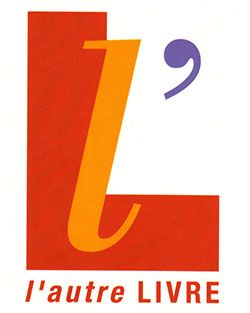Jean Streff,
In memory of tomorrow
Love transport
It's always the lost souls who find themselves in forbidden beds where the infanta laughs once her eros has dried up. And Jean Streff chooses one of them to stick out his tongue in the right way where the mouth hangs open when such a hero succumbs to the cinematic exploits of Gary Cooper, Alan Ladd, Grace Kelly, and a few other heroes of not-necessarily-dull westerns.
The central character—albeit somewhat out of it—remains strange: he's obsessed with the idea of being born at midnight. Which, after all, is an idea like any other. But is that a good reason to take a train at the same time?
And not least: since it leads nowhere—which could be everywhere. On such a Jarmusch-esque train, the hero finds himself in the company of a deranged conductor, the ghost of Edith Piaf, and a clown—as sad as can be. Which is not the case in this rail movie.
In its own way, it derails, since, leaving the Gare de Lyon, it crosses as much so-called gentle France as the America of childhood. It's enough to make you lose your bearings, where time misplaces its compass. It's more of a nuisance than a service on this train where no one ever sleeps and where ghosts become a kind of vampire.
In this swarm of stories and confessions, as the convoy advances, the fiction is doubled by other means of transport that go to the erotic thread in a sort of flashback "in memory of tomorrow." These memories sometimes return with a jackal's appetite. As for feelings, everything remains uncertain, even if the "sex stories" that the hero tells don't make anyone laugh.
What remains is a problem of amorous transport where lives are ghosts in the name of the one who started it all and who has just died suspiciously: the mother. She loved her (e)lost son more, no doubt, than it would have been reasonable to foment. Which, for the false liar novelist, is the most wonderful pretext for absolute drifting.
By constantly mixing up the sausages, everything ends up where it must have gotten tangled up in untimely switches. Through such a journey, Plato's cave itself is a chimerical abyss: against its walls, the confession of maternal murder takes on a particular lick.
Jean-Paul Gavard-Perret
Jean Streff, In memory of tomorrow, Editions Douro, coll. Le Bleu-Turquin, Chaumont, 2021, 166 p. — €18.00. New paragraph
I will go through the dark streets slitting throats
your ghosts
“The crowd had parted as if before the footsteps of a prophet. I rushed forward. I saw the throat cut cleanly by the razor blade. I saw the head partially detached from the beast's body, blood spurting from the arteries like jets of sperm and bubbling the stream. And I stood there in that ring of fire where lions sometimes hesitate to jump during dressage acts. I stood there, and I looked at the extreme gash in the neck where the jets of blood had subsided, at the face that now reflected an incredible melancholy. I stood there and I wished that this moment would never end.”
In memory of tomorrow
After learning of his mother's death under dubious circumstances, a man, obsessed with the idea of being born at midnight, takes a midnight train from Paris-Gare-de-Lyon. A train with no destination, whose only passengers are a mad and aggressive conductor, the ghost of Edith Piaf, and a sad and melancholic clown. The night train seems to traverse time, dreams, and fantasies, as the man relives entire sections of his past. But where is this old steam locomotive taking him?












